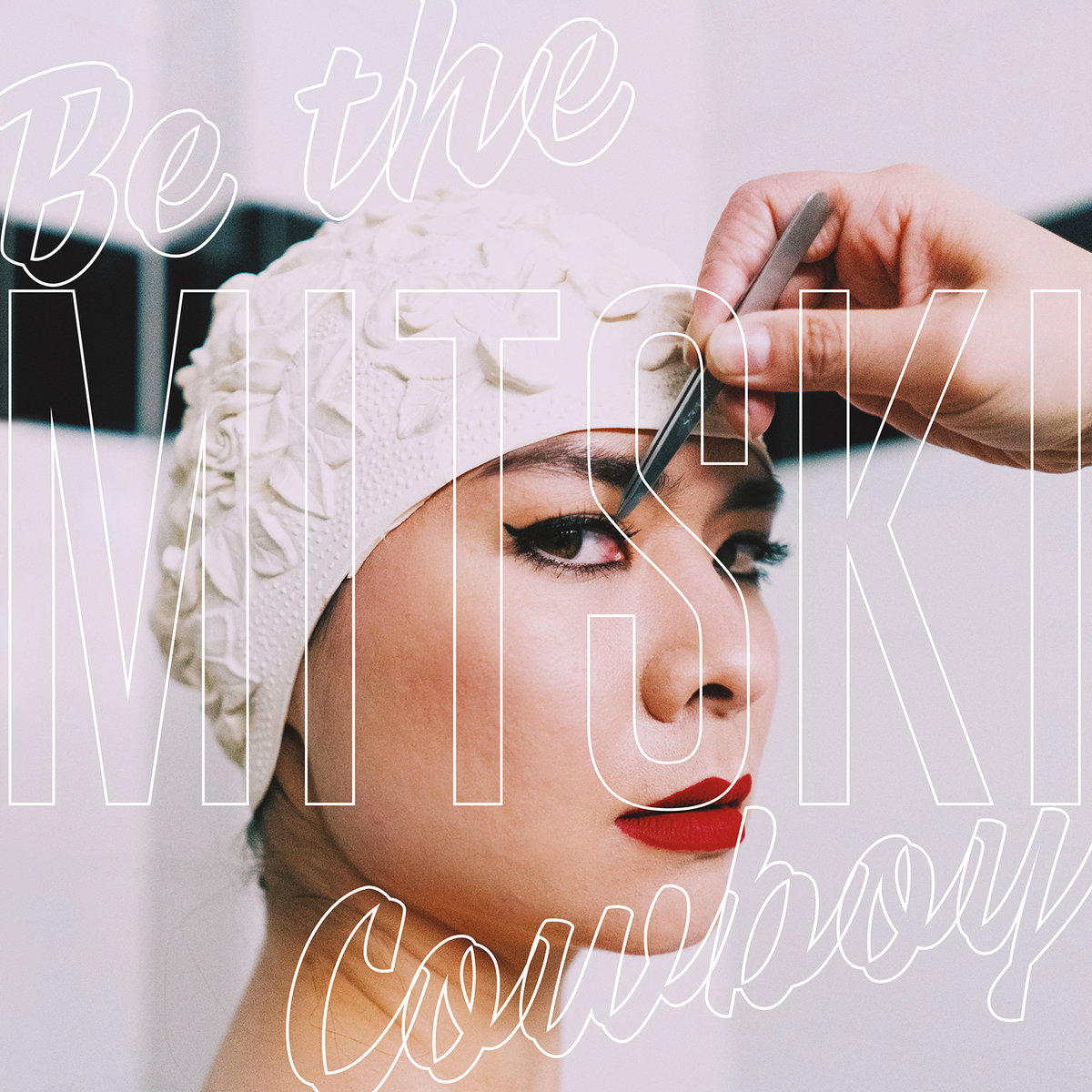Like most things mythic and unknowable, cowboys are a perennial fascination of singer-songwriters. In the ‘90s, Paula Cole ironically lamented the absence of the gallant cowboys from her dating horizon, and earlier this year, Kacey Musgraves shooed a flinchier one out into the universe. No doubt when the first cowboy ever saddled a horse, someone wrote a rueful song for the occasion. They’re never actual cowboys—“the real working cowboy that exists today,” in Mitski Miyawaki’s words—but symbols of masculine hyperconfidence and bluster, prone to corrosion by feelings and humanity.
With her fifth album Be the Cowboy, Mitski is the latest songwriter to channel and question the essence of Marlboro man. The title’s beguiling self-affirmation implies swagger and self-reliance, which don’t necessarily translate to volume. Be the Cowboy largely dispenses with the distortion of Mitski’s guitar-oriented recent work, getting all the fuzz out with intro track “Geyser.” What’s left are short and thwarted pop songs. (Only two are longer than three minutes.) According to Miyawaki, she drew inspiration from the The Piano Teacher, a film about a woman whose deeply repressed masochism leads her dull lover to destroy her. And while nothing on this album is quite so bleak, tracks like “Blue Light” and “Washing Machine Heart” exude the same sense of longing left to stew for years until it’s gone sour. Two images recur throughout the album: kissing—or wanting a kiss and not getting one—and the painting over of flaws. In the musically jaunty “Me and My Husband,” a nervous wife describes herself as “the idiot with the painted face.”
Mitski suffers the same cliche that critics and casual observers levy on almost all female singer-songwriters, that her music is somehow autobiographical. She understandably bristles at this, and Cowboy tracks like “Me and My Husband” seem pointedly un-autobiographical. It begins with a heavy sigh, and the wry forced cheer of someone who’s dragged herself out to a party after an afternoon of crying. Each piano chord is a bit too bright, each lyric a bit too chipper, each mention of “husband” a bit too insistent, as if she’s trying to summon him from the next room. “Me and my husband,” she sings, “we’re doing better.” But the song is no clickbait-era take on The Feminine Mystique. It’s not so much that she’s resigned to marriage, but to her own anxiety. When she sings about “when he walks in,” the swoon is sincere.
The other Mitski cliché—at least since she named an record Retired From Sad, New Career in Business—is that her music is all glum. (A meme from Be the Cowboy’s release week cast the album as a glum grey modernist house next to the Barbie-pink bungalow of Ariana Grande’s Sweetener, released the same day.) A more specific phrase might be “optimistically sad.” The most cowboyish track, “Lonesome Love,” rides a country strut straight into a rueful punchline: “nobody fucks me like… me.” “Pink in the Night” is among the most unabashedly romantic songs out this year, all blossoms and swooning and euphoric pink glow, delivered to someone’s turned back. And that’s the optimistic interpretation—it’s just as plausible she’s alone.
Yes, “Nobody” is explicitly sad. And yes, it is the disco song that might as well come standard in 2010s pop and indie-rock contracts. But at least it has a specific goal in mind. It’s the midpoint of the Cardigans’ “Lovefool” and ABBA’s “Gimme Gimme Gimme (A Man After Midnight)”: a woman alone, no partner for her desires, no dancefloor for her disco. For ABBA, there’s “not a soul out there,” yet the riff seethes and pulses, turning loneliness into release. In “Nobody,” on the other hand, Mitski’s narrator is surrounded by people, and the best approximation of disco an indie rock album can conjure, but is lost among both. She longs for a “movie kiss,” singing a movie-musical melody—one can imagine Julie Andrews delivering the chorus—and muddles through key changes that might otherwise be ecstatic, but end only in an acoustic petering-out. As the long version of Mitski’s titular phrase goes, “Be the cowboy you want to see in the world”—because no one else will.





